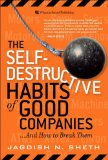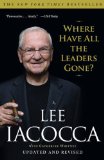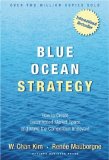 The Other Side of the Card: Where Your Authentic Leadership Story Begins
The Other Side of the Card: Where Your Authentic Leadership Story Begins
by Mike Morrison
Knowing a little bit more about this author may explain the powerful content of still another of those many small books that seem to appear on our local bookstore shelves with regularity. However, don’t be mislead by the dimensions of the book itself nor the low number of 125 pages. The story is an eye-opener, the lessons are many, and the impact has the potential of changing the way you view leadership.
Back to the author for a moment. Mike Morrison, Ph.D., played a key leadership role in the development and launch of the University of Toyota, one of the leading corporate universities in the world today. Toyota is currently the talk of the automotive world as they recently moved ahead of Detroit’s “Big Three” automakers to assume the coveted title of the world’s No. 1 automobile company. Don’t think for a moment that the University of Toyota didn’t play a key role in that accomplishment. In addition to supporting Toyota employees and partner organizations, Dr. Morrison is engaged in major global leadership development initiatives to advance new ways of leading. Currently the Vice President and Dean of the University of Toyota, Dr. Morrison is one of the most influential thinkers on leadership principles today.
The Other Side of the Card is an easy read—short, packed with great lessons, and full of specific tools you can put to use immediately. It’s a compelling parable on finding one’s true leadership voice. The author uses the typical everyday business card as a symbol of personal identity and power. You will soon understand that the blank side of your card—much like the hidden part of your identity—is not empty space but limitless possibility.
Through the voice of a retiring CEO struggling to define his new future role in life, we learn how to define deeper meaning in our work and personal life. The lead character is easy to relate to, and the story of his challenges will certainly be familiar. You will immediately relate to the characters as they manage the slings and arrows of an accelerating world. Through lively discussions and engaging exercises, Morrison introduces the principles and practices of personal leadership development.
The author introduces the foundational principles and practices of the “Me” and “We” paths of personal leadership development. The “Me” path is the inner journey of developing our leadership voice. The “We” path is the outer journey of serving others.
The six steps create a real world pathway for the journey we must all take to make a difference in our work and personal lives. The transition from “me to we” is directly relevant to the pace of change in today’s challenging business environment.
This book will profoundly impact your view of leading and living each day. It’s for everyone who needs to or wants to lead others in this world today.
As an added bonus, Dr. Morrison offer free downloads, inspiring thoughts, and practical tips from his website to help sharpen the skills you’ve learned within the pages of this best seller—www.theothersideofthecard.com.
(This book review was originally published in 2007 as one of the Top 10 Books – Edition 16.)

 Trust Your Gut: How the Power of Intuition Can Grow Your Business
Trust Your Gut: How the Power of Intuition Can Grow Your Business Send: The Essential Guide to Email for Office and Home
Send: The Essential Guide to Email for Office and Home The Self-Destructive Habits of Good Companies: … And How to Break Them
The Self-Destructive Habits of Good Companies: … And How to Break Them New Ideas from Dead CEOs: Lasting Lessons from the Corner Office
New Ideas from Dead CEOs: Lasting Lessons from the Corner Office See Jane Lead: 99 Ways for Women to Take Charge at Work
See Jane Lead: 99 Ways for Women to Take Charge at Work Seduced by Success: How the Best Companies Survive the 9 Traps of Winning
Seduced by Success: How the Best Companies Survive the 9 Traps of Winning Talent Is Never Enough: Discover the Choices That Will Take You Beyond Your Talent
Talent Is Never Enough: Discover the Choices That Will Take You Beyond Your Talent Where Have All the Leaders Gone?
Where Have All the Leaders Gone? Blue Ocean Strategy: How to Create Uncontested Market Space and Make Competition Irrelevant
Blue Ocean Strategy: How to Create Uncontested Market Space and Make Competition Irrelevant